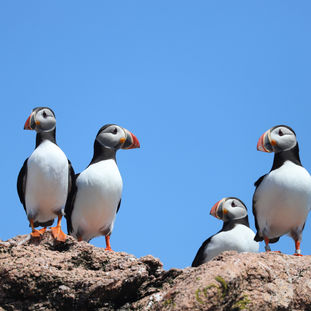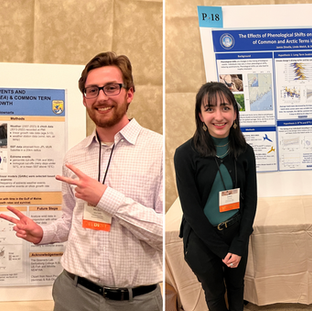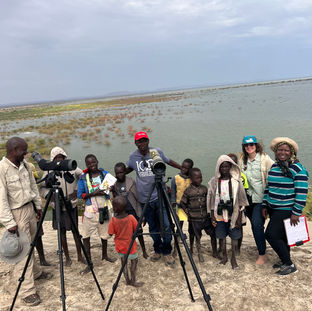THE GOWNARIS LAB

The Gownaris Lab at Gettysburg College relies on quantitative methods and field ecology to inform marine and freshwater ecology and conservation in a rapidly changing world. Our research seeks to better understand how marine foragers respond to climate shifts and extremes, with a focus on intraspecific variation in these responses. Additionally, we conduct research into DEIB in STEM and into global marine spatial planning.
As part of the interdisciplinary Environmental Studies Department at Gettysburg College, our lab members have diverse research interests. Current projects in the lab range from using bibliometric data data to examine patterns in "parachute science" in the field of ecology to using tern chick provisioning data to better understand how individuals vary in their dietary responses to marine heatwaves. Check out our research page for more information on current projects and our inclusive STEM page for open resources on inclusive STEM education!

















